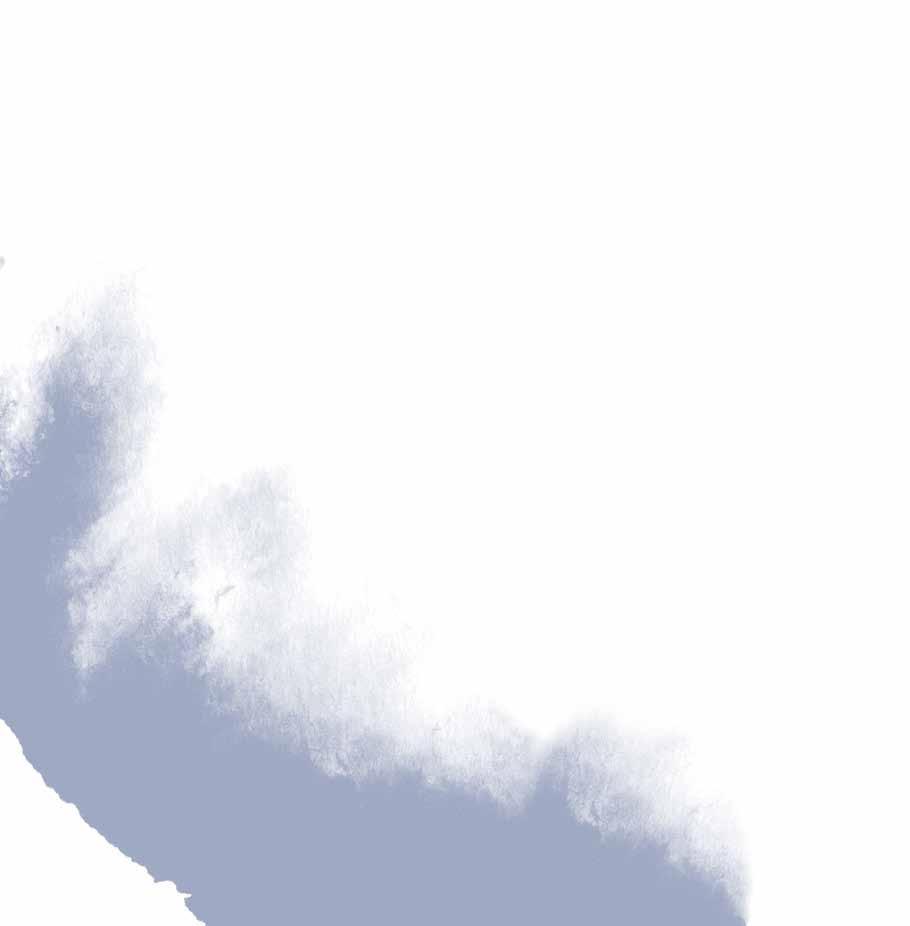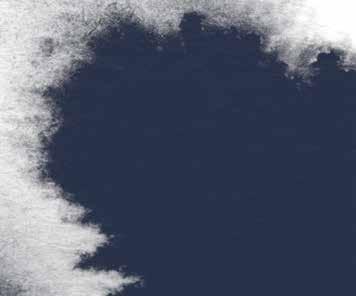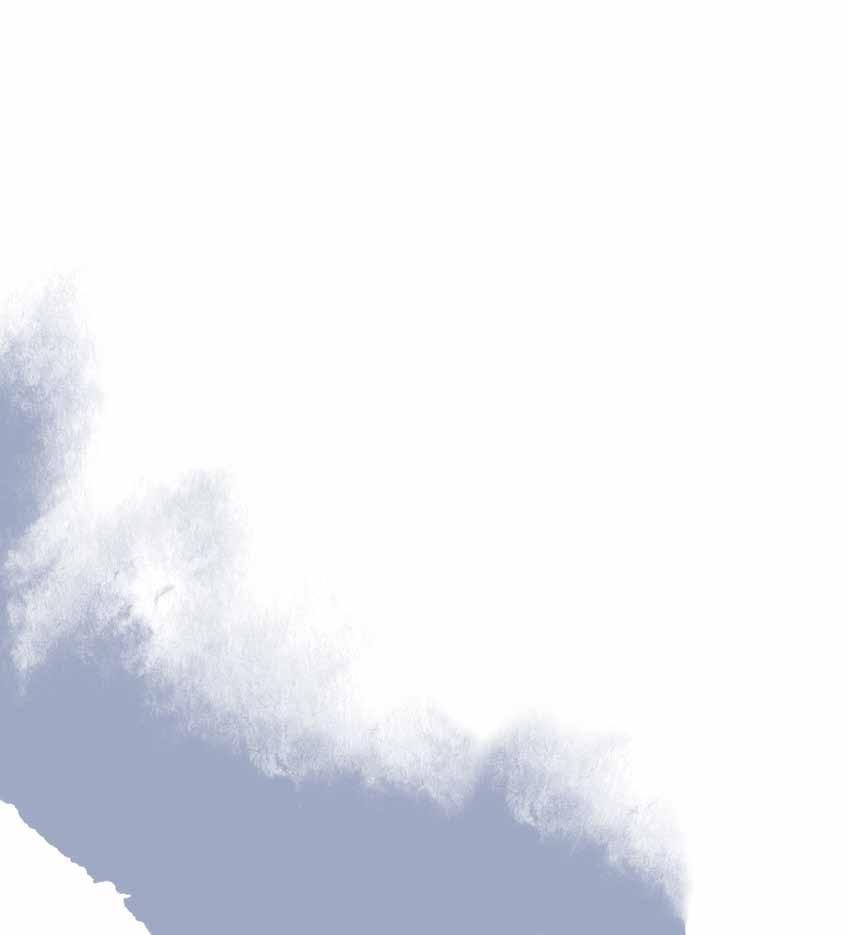
14 minute read
Acquisitions
h) Other performance measures
We were delighted to receive several gifts to our collection, the engine that drives much of our activity. Significant acquisitions include two late-C19th / earlyC20th watercolour drawings of Dove Cottage (the gift of Harry Williamson), timed perfectly to inform our new interpretation, a drawing of Eamont Bridge by Dr William Crotch, after a print by Thomas Allom (the gift of Nicholas and Cecilia Powell), a collection of lateC19th and early C20th photographs of Grasmere (the gift of Michael Rees-Davies), works by the Rev. Joseph Wilkinson (the gift of Charles and Maggie Plouviez, received by bequest), and a generous number of drawings and prints gifted by the W.W. Spooner Charitable Trust, including a view of Borrowdale by Nicholas Pocock.
Advertisement
The breadth of our growing Lake District fine art collection was made evident by our final publication of the year, The Country of the Lakes in 1820 (the essay that was to become Wordsworth’s Guide to the Lakes), which was illustrated entirely by images from our own holdings. The publication was co-edited by Cecilia Powell and Stephen Hebron.
We were pleased to loan items from our collection to exhibitions at the Beacon Museum in Whitehaven, the National Museum of Scotland in Edinburgh, Tullie House Museum & Art Gallery in Carlisle and Wordsworth House in Cockermouth.
Our vocational training programmes also continued and 14 young people benefited, as Trainees, universityfunded interns, and early career research fellows supported by the British Association of Romantic Studies.
3. Acknowledgements
A great many organisations and individuals share our passion for safeguarding Wordsworth’s legacy and to celebrating his poetry as a force for good in the world. Firstly, we wish to thank our four Funding Partners for their major commitment to the Wordsworth Trust: the National Lottery Heritage Fund, the principal funder behind Reimagining Wordsworth; Arts Council England and South Lakeland District Council, whose support is fundamental to everything that we do; and Lancaster University, whose commitment to our work this year has also extended to shaping Wordsworth 250.
We also thank all those organisations that have enabled Reimagining Wordsworth to become a reality, including those grant-makers whose pledges were received this year and are reflected in our accounts: the Department for Digital, Culture, Media & Sport (through the Northern Powerhouse) and Cumbria Local Enterprise Partnership; the Wolfson Foundation; the Garfield Weston Foundation; the Foyle Foundation; the John R. Murray Charitable Trust; and Cumbria Gardens Trust. We also thank the many volunteers who have helped us to achieve parts of our strategy, including Lynn Shepherd, who manages the ‘Wordsworth & Romanticism’ blog, Derek Hook and his staff for sponsoring our fundraising events at Yewfield Guesthouse in Hawkshead, Peter Brears, whose knowledge and practical skills have been invaluable in creating a reimagined Dove Cottage, and Tony Mortlock for producing a film to keep our supporters up to date as building work got underway.
We are grateful to the Sir John Fisher Foundation, whose continued support for the post of Assistant Curator (Collection) enables us to give researchers access to what one recently described as “the friendliest archive in the world”, the Michael Marks Charitable Trust, with whose support we continued to promote the creation and publication of contemporary poetry, Children and the Arts, which funded the project through which we gave inspiration to schoolchildren in low-income areas of west Cumbria, and Cumbria County Council, who helped us to bring our activities to every corner of the county. We also thank those individuals upon whose generosity we depend to achieve everything that is described in this report: Patricia Grodd & Michael Stone; John & Barbara Forsyth; John & Clare Spedding; Corinna Wiltshire; the W.W. Spooner Charitable Trust, Tamsin Abbott, Kirsty Anderson, Bev Dennison, Nicholas and Cecilia Powell, the Plouviez family, Michael Rees-Davies, Christine Shaw, Michael Thomas and Harry Williamson for adding to the richness of our collection with their gifts of paintings, drawings, prints and other objects; our many Patrons and Friends; and all those other individuals, across the world, who help us to keep Wordsworth’s memory alive at Dove Cottage.
Michael McGregor
The Robert Woof Director
1. Summary
The net income for the year, including investment gains and losses, was £2,207,000 (2018/19: £458,000 net income).
The delivery phase of Reimagining Wordsworth in 2019/20 has had an impact on visitor numbers and income, as the museum was closed for the whole year and Dove Cottage was only open for from late summer until November. The further closure of the site in April 2020 due to Covid-19 will not impact our income and expenditure until 2020/21 but it is a huge factor when reviewing the financial outlook. The Covid-19 crisis has come at a particularly tough time as we have used our reserves to support our business during the project and we have missed out on capitalising on reopening Dove Cottage to coincide with national celebrations of Wordsworth’s 250th anniversary.
The impact of Reimagining Wordsworth can be seen in a number of areas in the financial statements. The delivery phase started in May 2018 following the approval of the bid to the National Lottery Heritage Fund, and it is now expected to continue until early 2021. The project was subject to some delays before the onset of Covid-19 but the pandemic has exacerbated those delays as the contractors had to stop work completely for six weeks and work within social distancing rules on restarting. The National Lottery Heritage Fund has supported the project with a 75% grant of £4.1m with the remaining funding coming from a wide range of foundations and individual supporters.
During the year, expenditure on Reimagining Wordsworth was £3,264,000 (2018/19: £498,000) of which £2,998,000 (2018/19: £335,000) was capitalised as assets under construction. The balance was treated as expenditure. Grant income received from the National Lottery Heritage Fund amounted to £2,548,000 (2018/19: £308,000). Other grant income, pledged in previous years but received in 2019/20, is itemised in note 3 to the full accounts. Salary costs amount to £894,000 (2018/19: £837,000). There was a pay award of 2% in April 2019 plus an increase to the national living wage.
Arts Council England renewed its National Portfolio Organisation grant, received as part of the Cumbria Museum Consortium, with effect from 1 April 2018 for four years; the grant has now been extended for a further year to 31 March 2023.
Expenditure against other restricted funds includes £108,000 in depreciation on the Jerwood Centre, which was funded by grants in prior years.
Trading conditions for the trading subsidiary Dove Cottage Promotions Ltd (DCP) have been severely impacted by the reduction in visitor numbers throughout the year. A new café has been developed as part of Reimagining Wordsworth but due to delays in the development this could not open until the early part of 2020. In February 2020 Storm Ciara affected the café badly, and it had to close again; its closure is subject to an insurance claim. The loss for the year is £52,000 (2018/19: £10,000), a good proportion of which is attributable to staffing up in preparation for the initial opening of the café, which was then delayed. The repairs following Storm Ciara will be completed in July and the cafe will open under social distancing rules as soon as practicable thereafter.
2. Investments
We own several properties in Town End in Grasmere in the vicinity of Dove Cottage and hold them as investment assets, with the rental income being an important source of revenue. The capital appreciation on these properties helps sustain our long-term financial security. The properties are let to a mix of staff and third parties, and rents are assessed against market rates. One property is a guest house and is let on a commercial lease. Rental income for the year was £96,000 (2018/19: £103,000): this has reduced as 3 Town End Terrace is no longer generating rental income and as there were no seasonal employees this year the rental income on 1 and 2 Lake Terrace was also reduced. In the accounts for 2018/19 two buildings were transferred to fixed assets as they are now used for general business and Old Sykeside is now held as a heritage asset due to its historical significance.
Four discrete investment funds are managed by Cazenove Capital Management (the wealth management arm of Schroder plc): the Development Fund; the R.S. Woof Memorial Fund, which permanently endows the post of the Robert Woof Director; the Catalyst Endowment Fund; and the Reserve Fund, which is held in the balance sheet under cash at bank. There are no ethical restrictions on any of the funds under management but we have agreed the following statement on environmental, social and governance issues in investing.
The Development Fund comprises both a permanent endowment and a designated element. Due to the restrictions placed upon the entire Development Fund by the donor of the endowment element, both components of the fund must be treated as permanent endowment. The fund overall is invested on a total return basis and the managers have investment discretion to meet a target total return of CPI + 2%. In June 2020, as part of our reaction to the Covid-19 crisis, we agreed in principle with the donor of the endowment element that some of the restrictions could be lifted. This would allow some of the Development Fund to be used to support us through this crisis and to cover any potential overspend on the Reimagining Wordsworth project.
Trustees plan to allocate at least £50,000 per year on a regular basis from the entire fund to income in order to aid planning within the organisation. In 2019/20 we decided to allocate £16,250 per quarter. In making this allocation, Trustees have sought the opinion of the investment manager and considered the impact on both current and future beneficiaries. At 31 March 2020 the unapplied total return amounted to £162,000 (31 March 2019: £331,000) in the Endowment Development Fund and £108,000 (31 March 2019: £205,000) in the designated element of the Fund. As a result of the pandemic, the FTSE-100 Total Return Index has fallen 18.4% over the year to 31 March 2020. The Development Fund generated a total return of -7.7% against a target of 3.5% (CPI + 2% for the year to 31 March 2020) and a benchmark of -9.1%. During the year Trustees decided to invest some of the Development Fund in a responsible multi-asset fund and £100,000 was invested. This again was hit by the fall in stock markets and generated a return of -12.9%.
The Catalyst Endowment Fund is invested with a prudent approach to risk to maximise income consistent with maintaining the real value of the capital. It has a higher requirement for income than the development fund, being set at 3.5%. The fund saw a fall in value of £109.8k over the year and generated a return of -10.3%. Arts Council England has agreed to allow us to access the funding they provided for the Catalyst fund to support us through the Covid-19 crisis with the intention that we plan to reinvest the money in the future.
The purpose of the R.S. Woof Memorial Fund is to endow the position of the Robert Woof Director. To this end, the objective of the fund is to maximise income while maintaining the capital value. It has a more defensive mandate, but over the year saw a fall of £16.8k in capital value while generating a return of -2.2%.
All our fixed asset investments are managed for the longer term and Trustees remain confident that the long-term outlook remains favourable. The year-end values of investments were hit by the very sharp fall in stock markets in late March 2020 and whilst there has been an improvement in values since that time, we recognise that the short term outlook is uncertain.
The Reserve Fund investment is held as cash and is money received to support the Reimagining Wordsworth project. During 2019/20, £100,000 has been drawn down from this fund to support our cash requirements. As this fund is held in cash, the return over the year was 0.7%.

The results of our trading subsidiary, Dove Cottage Promotions Limited, which runs a book and gift shop and a cafe, are summarised in note 5 to the full accounts. With reduced visitor numbers and the impact of the closure of Dove Cottage during a large part of 2019, there was a trading loss of £52,000 in the year (2018/19: Loss £10,000). Margins however were comparable to previous years. The company has not made a gift aid payment to the Wordsworth Trust for this year (2018/19: nil).
3. Reserves
We maintain reserves to enable us to fulfil our charitable remit by providing for business continuity, security for our collection, and the maintenance of our properties in circumstances where our revenue requirements may not be covered by short-term income. The reserves are managed to offer the best return for the charity while remaining relatively liquid to meet our needs.
Trustees periodically review their reserves policy as part of the risk management process, and they have identified several main reasons for holding reserves:
• to allow the financing of a controlled reduction in expenditure should extraordinary events beyond our control generate a long-term reduction in income streams.
• to provide short-term support in circumstances where a temporary interruption to income means it is not appropriate to lose the skills and knowledge of the staff team or to curtail our programme of events.
• to accommodate the fact that many of our major events such as exhibitions and conferences are planned, and therefore expenditure is committed, months if not years in advance while income from these events in terms of admissions is not received until after the event opening. This misalignment of income and expenditure is a main consideration in determining an adequate level of reserves.
• to anticipate partial site closure during the delivery phase of the Reimagining Wordsworth project, which resulted in a loss of admissions income.
The level of reserves therefore varies depending on the specific circumstances and cannot be expressed as an exact figure. However, after taking all of these factors into consideration, the Trustees believe a free reserve (funds not tied to fixed assets, designated or restricted funds) of relatively liquid assets equivalent to the external income required to fund between three and six months’ budgeted expenditure is appropriate.
At the end of the year, our total funds are £17,564,000. Of this £2,363,000 are endowment funds and £5,828,000 are restricted funds which are not available for the general purposes of the charity. The Designated Development Fund of £819,000 must be treated as permanent endowment under the terms of the Endowment Development Fund as described in note 17 to our full accounts. Of the other three designated funds, the Collection Assets Fund (£3,708,000) represents our heritage assets and cannot be realised with the sale of the collection. The designated Warren Collection Fund of £59,000 is held as cash or near cash and is available to spend at any time on the acquisition of heritage assets. Tangible fixed assets and investment properties held in the general fund totalled a further £11,243,000. To purchase investment properties and fixed assets and to provide working capital, Trustees had taken out a long-term interest only loan of £1,000,000. This loan was refinanced in January 2020 to a repayment loan with a term of five years and a repayment profile of 15 years.
Trustees have reviewed the method of calculation of free reserves in line with guidance produced by the Charity Commission (including reflecting an allocation of the tangible fixed assets and investment properties we hold). They consider period-end free reserves are now £127,000 (2018/19: £127,000). Trustees believe between three and six months’ budgeted expenditure is an acceptable measure for the level of free reserves but had anticipated that reserves would fall to zero or into a negative position during the years affected by the Reimagining Wordsworth development phase. At 31 March 2020, three months expenditure would equate to £277k. The current level of free reserves reflects the difficult trading conditions over the last few years and the impact of the closures of the site as an impact of the Reimagining Wordsworth project. It also highlights the need for the project, which has as one of its aims our long term financial sustainability. The reduction in reserves in the year 2019/20 reflects this impact on trading during the development phase. The plan was that in April 2020 Dove Cottage would re-open in time to celebrate the 250th anniversary of William Wordsworth and there would be a surge in visitor numbers and income as a result of the publicity. There would also have been a consequent increase in takings for Dove Cottage Promotions Ltd through its gift and book shop and café.
Because of Covid-19, none of this has now taken place so there will be further pressure on reserves throughout 2020/21. We have worked to minimise the impact of the lockdown through use of the Coronavirus Job Retention Scheme, minimising general expenditure, applying for grants and other support where available, and salary reductions through staff voluntarily reducing their contracts to 80%. When we re-open, although the outlook for the group markets is poor, it is hoped that there will be a benefit to us in an increase in ‘staycations’. We do not however underestimate the financial pressure we will face during the winter months and this is why we have applied for access to some of our endowment funds.
Where the money came from
90% Grants and donations
5% Property rents and financial investments
How it was spent
5% Ticket and shop sales

53% Access and learning

24% Custodianship

23% Cost of generating funds




